1825 John Quincy Adams, president of US
 Nicholas I, czar of Russia Nicholas I, czar of Russia
 Johann Strauss: "Waltz King" Johann Strauss: "Waltz King"
 Kappa Alpha, 1st social fraternity formed Kappa Alpha, 1st social fraternity formed
 JJames Bridger discovered Great Salt Lake JJames Bridger discovered Great Salt Lake
 Erie Canal completed Erie Canal completed
1826 James Fenimore Cooper: "The Last of the
 Mohicans" Mohicans"
 Nguan Nguan edited writings of Confucius Nguan Nguan edited writings of Confucius
 John Stevens built 1st US steam locomotive John Stevens built 1st US steam locomotive
1827 Peru ceded from Columbia
 Victor Hugo: "Cromwell" Victor Hugo: "Cromwell"
 J.J.Audubon: "Birds of North America" J.J.Audubon: "Birds of North America"
 sulphur matches introduced by John Walker sulphur matches introduced by John Walker
 Davy Crockett elected to US Congress Davy Crockett elected to US Congress
 Beethoven died Beethoven died
1828 Duke of Wellington became Prime Minister of
 Great Britain Great Britain
 James Fenimore Cooper: "The Red Rover" James Fenimore Cooper: "The Red Rover"
 Alexandre Dumas: "The Three Muskateers" Alexandre Dumas: "The Three Muskateers"
 first US railroad built first US railroad built
 Frederic Chopin began concert tour (age 18) Frederic Chopin began concert tour (age 18)
 Noah Webster published American Dictionary Noah Webster published American Dictionary
 of English Language of English Language
 violinist Niccolo Paganini performed in Vienna violinist Niccolo Paganini performed in Vienna
1829 Andrew Jackson, president of US
 Chopin's debut in Vienna Chopin's debut in Vienna
 first US patent on a typewriter first US patent on a typewriter
 Louis Braille developed reading method for blind Louis Braille developed reading method for blind
 L.J.M.Daguerre & J.N.Niepce joined to work on L.J.M.Daguerre & J.N.Niepce joined to work on
 photographic inventions photographic inventions
1830 France captured Algeria
 Chester Arthur, president of US Chester Arthur, president of US
 Tennyson: "Poems, Chiefly Lyrical" Tennyson: "Poems, Chiefly Lyrical"
 Revolution in Paris Revolution in Paris
 William IV, king of Great Britain & Ireland William IV, king of Great Britain & Ireland
 Louis Phiilippe, king of France Louis Phiilippe, king of France
 Indian Removal Act passed to move US Indian Removal Act passed to move US
 southeastern tribes to Indian Territory southeastern tribes to Indian Territory
 Mormon religious society formed by Joseph Smith Mormon religious society formed by Joseph Smith
 Belva Lockwood, first woman attorney to practice Belva Lockwood, first woman attorney to practice
 before US Supreme Court before US Supreme Court
 stiff collars part of men's dress stiff collars part of men's dress
 Godey's Lady's Book, 1st successful publication Godey's Lady's Book, 1st successful publication
 for women for women
 women's skirts became shorter; sleeves become huge women's skirts became shorter; sleeves become huge
 women's hats became very large with flowers and women's hats became very large with flowers and
 ornamentations ornamentations
 Robert Brown discovered cell nucleus in plants Robert Brown discovered cell nucleus in plants
1831 separation of Belgium from the Netherlands
 French Foreign Legion formed by King Louis Philippe French Foreign Legion formed by King Louis Philippe
 Cardinal Mauro Capellari elected Pope Gregory XVI Cardinal Mauro Capellari elected Pope Gregory XVI
 Sir James Clark Ross determined the magnetic Sir James Clark Ross determined the magnetic
 North Pole North Pole
 cholera pandemic spread from India to Russia cholera pandemic spread from India to Russia
 and into Europe and into Europe
 London Bridge opened London Bridge opened
 Samuel Francis Smith wrote the words to Samuel Francis Smith wrote the words to
 "My Country, Tis of Thee" "My Country, Tis of Thee"
1832 word "socialism" came into use
 Democratic party established in US Democratic party established in US
 first horse drawn trolleys in New York City first horse drawn trolleys in New York City
 Aurore Dudevant (aka George Sand) published Aurore Dudevant (aka George Sand) published
 "Indiana" "Indiana"
1833 Otto, king of Greece
 England occupied Falkland Islands England occupied Falkland Islands
 General Santa Ana became president of Mexico General Santa Ana became president of Mexico
 Davey Crockett's autobiography published Davey Crockett's autobiography published
 "New York Sun" founded "New York Sun" founded
1834 General Lafayette died
 Spanish Inquisition supressed Spanish Inquisition supressed
 South Australia Act allowed colonies created South Australia Act allowed colonies created
 Honoré de Balzac: "Le Pere Goriot" Honoré de Balzac: "Le Pere Goriot"
 Victor Hugo: "The Hunchback of Notre Dame" Victor Hugo: "The Hunchback of Notre Dame"
 Benjamin Disraeli: "The Infernal Marriage" Benjamin Disraeli: "The Infernal Marriage"
 Charles Babbage invented principle of Charles Babbage invented principle of
 analytical engine analytical engine
 Cyrus Hall McCormick patented reaping machine Cyrus Hall McCormick patented reaping machine
 Walter Hunt constructed first sewing machine Walter Hunt constructed first sewing machine
 Jacob Perkins patented 1st practical ice Jacob Perkins patented 1st practical ice
 making machine making machine
 Whig party formed in US Whig party formed in US
1835 Second Seminole War
 Texas declared right to secede from Mexico Texas declared right to secede from Mexico
 Hans Christian Anderson: Tales Told For Children Hans Christian Anderson: Tales Told For Children
 Halley's Comet reappeared Halley's Comet reappeared
 P.T.Barnum began career as showman P.T.Barnum began career as showman
 Samuel Colt took out patent for single barrel rifle Samuel Colt took out patent for single barrel rifle
 and pistol and pistol
 Melbourne, Australia founded Melbourne, Australia founded
1836 Davey Crocket killed at Alamo
 Charles Dickens: "Pickwick Papers" Charles Dickens: "Pickwick Papers"
 Adelaide, Australia founded Adelaide, Australia founded
 "The Lancers" became popular dance in Europe "The Lancers" became popular dance in Europe
 Betsy Ross died Betsy Ross died
 Sam Houston became president of Republic of Texas Sam Houston became president of Republic of Texas
 Ralph Waldo Emerson founded the Transcendental Ralph Waldo Emerson founded the Transcendental
 Club Club
 "Arc de Triomphe", Paris, completed "Arc de Triomphe", Paris, completed
1837 Martin van Buren, president of US
 Victoria became Queen of England Victoria became Queen of England
 Nathaniel Hawthorne: "Twicetold Tales" Nathaniel Hawthorne: "Twicetold Tales"
 Samuel Morse exhibited electric telegraph Samuel Morse exhibited electric telegraph
 Texas Rangers were founded Texas Rangers were founded
1838 Elizabeth Barrett Browning: "The Seraphim and
 Other Poems Other Poems
 Dickens: "Oliver Twist" & "Nicholas Nickleby" Dickens: "Oliver Twist" & "Nicholas Nickleby"
 Kirkpatrick Macmillan made 1st pedal driven bicycle Kirkpatrick Macmillan made 1st pedal driven bicycle
 Trail of Tears claimed lives of 4,000 Cherokee Trail of Tears claimed lives of 4,000 Cherokee
 Indians Indians
 Jenny Lind made acting debut in Stockholm Jenny Lind made acting debut in Stockholm
 Charles Wilkes headed US Navy expedition to Charles Wilkes headed US Navy expedition to
 Antarctica Antarctica
 Samuel Morse created "Morse Code" for telegraph Samuel Morse created "Morse Code" for telegraph
 J.J.Audobon: "The Birds of America" 4th volume J.J.Audobon: "The Birds of America" 4th volume
 "New York Herald" first US newspaper to employ "New York Herald" first US newspaper to employ
 European correspondents European correspondents
1839 first Opium War - Britain & China
 Christian VIII, king of Denmark Christian VIII, king of Denmark
 Abdul Mejid, sultan of Turkey Abdul Mejid, sultan of Turkey
 Longfellow: "Hyperion" & "Voices of the Night" Longfellow: "Hyperion" & "Voices of the Night"
 Poe: "The Fall of the House of Usher" Poe: "The Fall of the House of Usher"
 Charles Goodyear developed vulcanization of rubber Charles Goodyear developed vulcanization of rubber
 Abner Doubleday conducted 1st baseball game Abner Doubleday conducted 1st baseball game
 ever played ever played
 Franz Liszt toured Europe Franz Liszt toured Europe
1840 James Fenimore Cooper: "The Pathfinder"
 transportation of criminals to New South Wales transportation of criminals to New South Wales
 from Britain ended from Britain ended
 underground railroad helped escaping slaves to underground railroad helped escaping slaves to
 freedom freedom
1841 Britain's sovereignty proclaimed over Hong Kong
 William Henry Harrison, president of US for 1 month William Henry Harrison, president of US for 1 month
 John Tyler, president of US John Tyler, president of US
 James Fenimore Cooper: "The Deerslayer" James Fenimore Cooper: "The Deerslayer"
 Poe: "The Murders in the Rue Morgue" Poe: "The Murders in the Rue Morgue"
 James Braid discovered hypnosis James Braid discovered hypnosis
 P.T.Barnum opened "American Museum" P.T.Barnum opened "American Museum"
 balletist Carlotta Grisi created role of Giselle balletist Carlotta Grisi created role of Giselle
1842 C.J.Doppler: "On the Colored Light of Binary Stars"
 (Doppler effect) (Doppler effect)
 polka came into fashion polka came into fashion
 Poe: "The Masque of the Red Death" Poe: "The Masque of the Red Death"
 John C. Fremont began surveying Oregon Trail John C. Fremont began surveying Oregon Trail
 P.T.Barnum discovered 40 inch Tom Thumb P.T.Barnum discovered 40 inch Tom Thumb
 Matthew F. Maury began research in oceanography Matthew F. Maury began research in oceanography
1843 Maori revolted against Britain in New Zealand
 Dickens: "A Christmas Carol" Dickens: "A Christmas Carol"
 Tennyson: "Morte d'Arthur" Tennyson: "Morte d'Arthur"
 Dorothea Dix reported shocking conditions in Dorothea Dix reported shocking conditions in
 prisons & asylums prisons & asylums
 Siamese twins, Chang and Eng Bunker married Siamese twins, Chang and Eng Bunker married
 thousands of settlers head for Oregon Trail thousands of settlers head for Oregon Trail
1844 Oscar I, king of Sweden & Norway
 Dumas: "The Count of Monte Cristo" Dumas: "The Count of Monte Cristo"
 Friedrich Gottlob Keller invented wood-pulp paper Friedrich Gottlob Keller invented wood-pulp paper
 Y.M.C.A. founded in London by George Williams Y.M.C.A. founded in London by George Williams
1845 James K. Polk, president of US
 Dumas: "Twenty Years After" - sequel to Dumas: "Twenty Years After" - sequel to
 "The Three Muskateers" "The Three Muskateers"
 Poe: "The Raven and Other Poems" Poe: "The Raven and Other Poems"
 US Naval Academy opened US Naval Academy opened
 potato crop failed in Ireland, led to famine potato crop failed in Ireland, led to famine
1846 Brigham Young led Mormons to Great Salt Lake
 US-Mexican War began US-Mexican War began
 US-Canada boundary line decided US-Canada boundary line decided
 John Deere invented plow with steel moldboard John Deere invented plow with steel moldboard
 sewing machine patented to Elias Howe sewing machine patented to Elias Howe
 Smithsonian Institution founded Smithsonian Institution founded
 Adolphe Sax patented the saxaphone Adolphe Sax patented the saxaphone
 Johann Galle first observation of Neptune Johann Galle first observation of Neptune
 William Morton used ether for dental extractions William Morton used ether for dental extractions
1847 Liberia proclaimed independent republic
 US forces captured Mexico City US forces captured Mexico City
 Charlotte Bronte: "Jane Eyre" Charlotte Bronte: "Jane Eyre"
 Emily Bronte: "Wuthering Heights" Emily Bronte: "Wuthering Heights"
 William Makepeace Thackeray: "Vanity Fair" William Makepeace Thackeray: "Vanity Fair"
 Mormons founded Salt Lake City Mormons founded Salt Lake City
 Verdi: "Macbeth" opera Verdi: "Macbeth" opera
 evaporated milk first made evaporated milk first made
 Maria Mitchell, 1st US woman astronomer, found Maria Mitchell, 1st US woman astronomer, found
 a new comet a new comet
 American Medical Association founded American Medical Association founded
 US Post Office began using adhesive stamps US Post Office began using adhesive stamps
1848 Treaty of Guadalupe Hidalgo ended
 Mexican-American War Mexican-American War
 revolt in Paris revolt in Paris
 revolutions in Vienna, Venice, Berlin, Milan & Parma revolutions in Vienna, Venice, Berlin, Milan & Parma
 second Sikh War began second Sikh War began
 1st US women's rights convention held in 1st US women's rights convention held in
 Seneca Falls, NY Seneca Falls, NY
 "Communist Manifesto" issued by Karl Marx "Communist Manifesto" issued by Karl Marx
 and Friedrich Engels and Friedrich Engels
 1st settlers arrived in New Zealand 1st settlers arrived in New Zealand
 discovery of gold at Sutter's Mill, California gold discovery of gold at Sutter's Mill, California gold
 rush began rush began
 Dumas: "Camille" Dumas: "Camille"
1849 Zachary Taylor, president of US
 Dickens: "David Copperfield" Dickens: "David Copperfield"
 David Livingstone discovered Lake Ngami David Livingstone discovered Lake Ngami
 Amelia Bloomer began women's dress reform Amelia Bloomer began women's dress reform
 slave Harriet Tubman escaped, started working with slave Harriet Tubman escaped, started working with
 Underground Railway Underground Railway
 Elizabeth Blackwell, 1st American women to obtain Elizabeth Blackwell, 1st American women to obtain
 a medical degree a medical degree
|
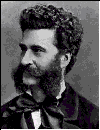
Johann Strauss, Jr. composed about 170 waltzes--the most beloved being "The Beautiful Blue Danube".

James Fenimore Cooper was an author of international stature and continuing influence.

Davy Crockett was one of America's most colorful frontiersmen and folk heroes.
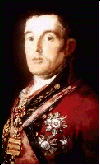
Arthur Wellesley, duke of Wellington, defeated Napoleon I at the Battle of Waterloo and later served in several Tory ministries, including one he headed as prime minister.

Alfred, Lord Tennyson, was the preeminent English poet of his time.
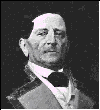
Antonio Lopez de Santa Anna dominated Mexico for 30 years and led it into a disastrous war with the United States.
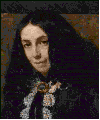
Elizabeth Barrett was an English poet.

Jenny Lind was one of the most celebrated singers of her time and was known by her adoring public as "the Swedish nightingale."

Edgar Allan Poe, virtually created the detective story and perfected the psychological thriller.

Henry Wadsworth Longfellow was the most popular and influential American poet of the 19th century
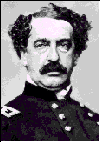
Abner Doubleday was an American military officer who is often incorrectly credited as the originator of baseball.
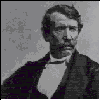
David Livingstone opened Africa to the West.
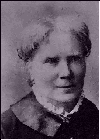
Elizabeth Blackwell was the first woman to obtain a medical degree from a U.S. medical school.
|













